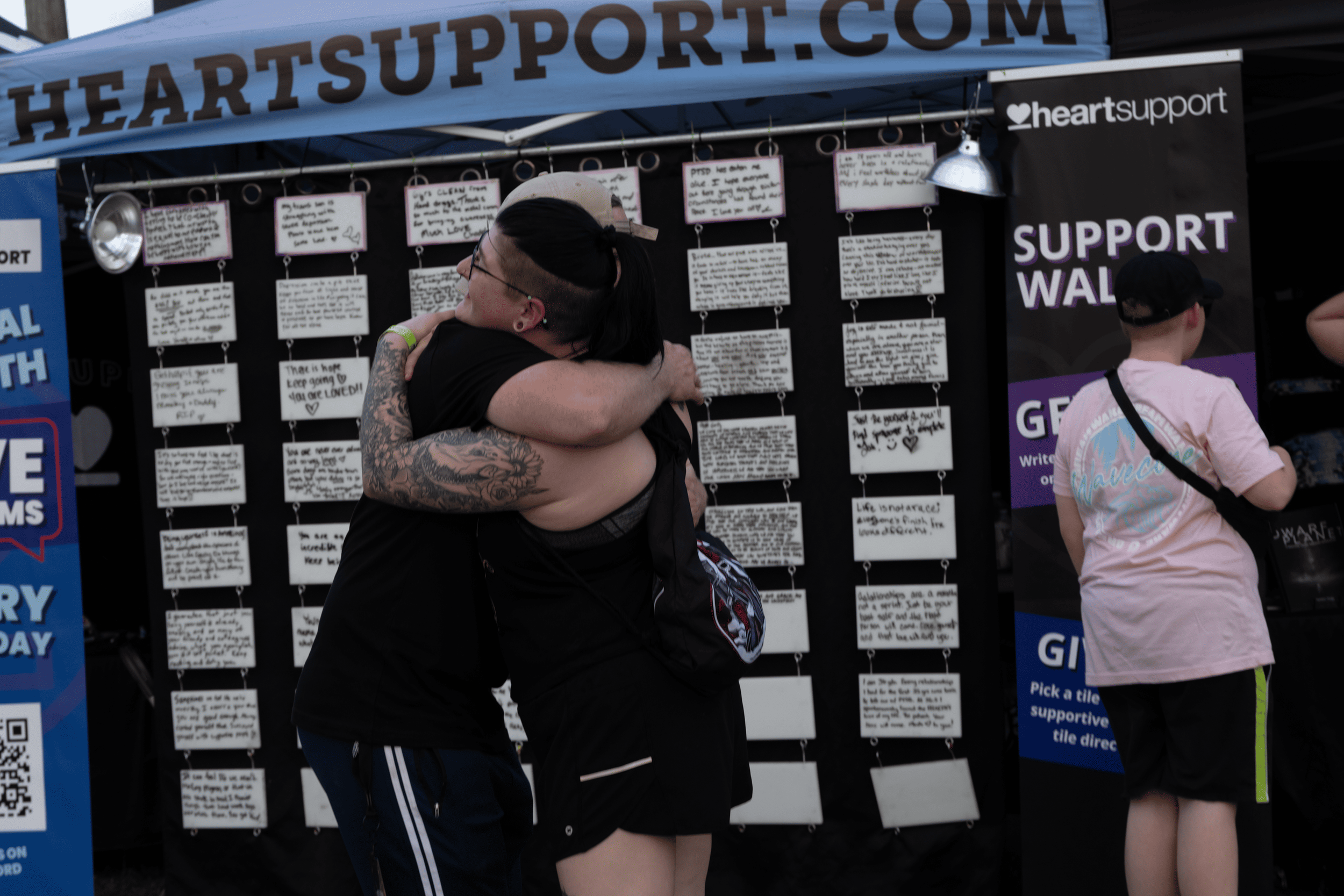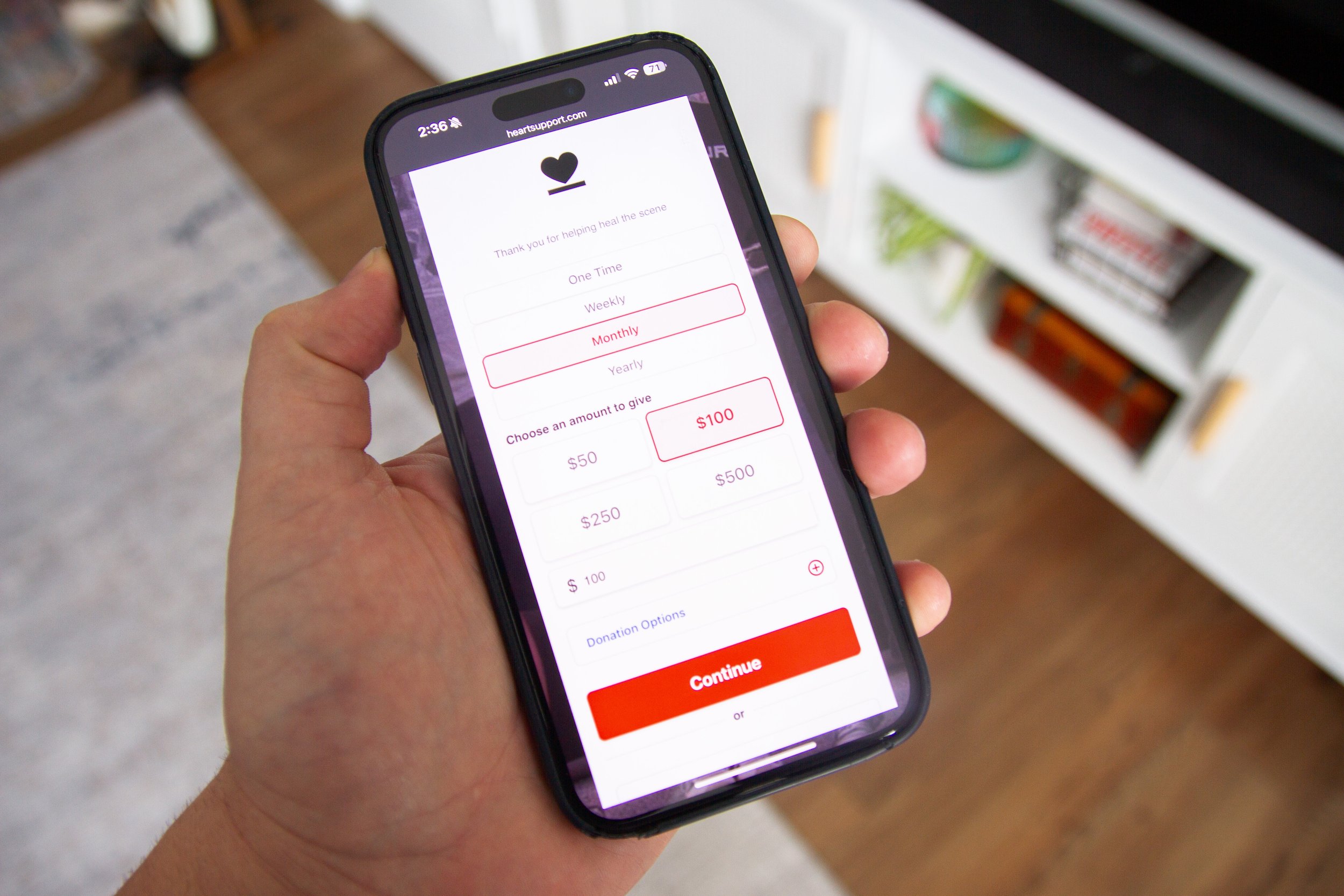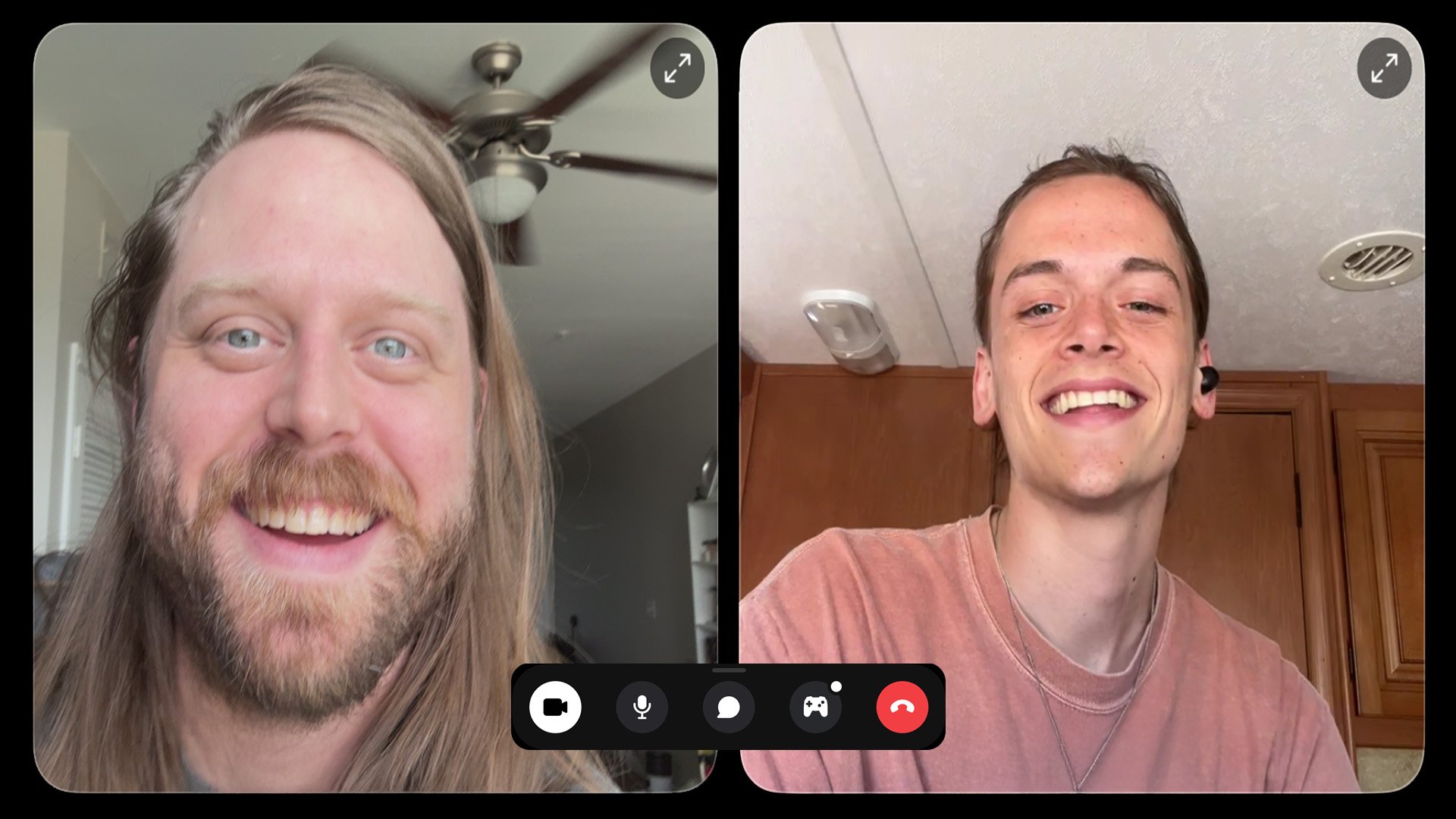
Starting mental health conversations through music
3 in 5 people who struggle with their mental health don’t seek help. Music can reach people in a way nothing else can.
How we help:
Concert Outreach
We attend festivals and tours to reach fans on-the-grounds.
Concert
We send our highly-trained team to music events.
Conversation
We go into the crowd and start conversations with fans.
Support
We support them there and connect them to more support after the show.
200+
Festivals and tour dates attended
50,000+
Music fans who have opened up about their mental health struggles to us
During concert outreach, we use our:
Support Wall
-
We innovated an inflatable wall with velcro-attached dry-erase tiles that allows for fans to ask for and receive support at shows.
-
Fans who write on the red tiles along the top of the wall are opening up about a mental health struggle they’re carrying right then and there.
-
Every gray tile underneath a red tile is a response to the fan who asked for support. Every concert, we fill the wall with encouraging replies that we send back to the fan who wrote the Red Tile.
-
Fans who write Red Tiles are often overwhelmed by the response. They read them with tears in their eyes, take photos, and use it as a significant moment in their story: they asked for help, and they received love in return.
The Wall also impacts fans who don’t write on the wall. People will stand and read every word written on the wall throughout the day, often taking pictures, being moved to tears by the gravity of it, and using it as a symbol that people CAN ask for help and actually receive it.
How we help:
Support Calls
We connect fans into long-term relationships for robust support.
Connect
We pair fans together based on their favorite music.
Calls
They call each other every week for a full year.
Impact
Transformative relationships form and help fans heal.
Our volunteer training course is:
Backed by Research
-
We train all volunteers in four evidence-based practices that are proven to help people improve their mental health self-efficacy. This means we train our volunteers to help fans improve their ability to self-sustain positive mental health.
-
We’ve trained over 1,000 music fans to become evidence-based peer supporters. They become capable of having conversations with anyone about any struggle they face. Our training influences the way they relate to others in their personal life as well, improving communication and connection.
-
The average volunteer provides over 50 hours of mental health support to other fans in the music scene.
Volunteers have helped provide over 100,000 supportive conversations with struggling music fans.
How are we different:
Our Support
With so many mental health resources out there, we didn’t want to re-invent the wheel. What we do is unique in many ways:
-
Music makes it easier for us to talk about our emotions and our struggles.
Our support is always connected to music so we can reach people who wouldn’t otherwise talk about their mental health. -
Mental health resources are more accessible than ever, and yet 3 in 5 people who struggle don’t seek help. We can’t wait for people to come to us.
That’s why our outreach is built to actually initiate conversations, not wait until they happen. -
Every volunteer is trained in four evidence-based practices, given multiple continuing education opportunities each year, and organized in our community for peer learning on multiple perspectives on different mental health struggles.
-
When life itself feels impossibly hard, seeking help has to be easy. That’s why we’ve designed our products to be a one-step process.
Open up here. We’ll get you help. No account creation, no hoops. Just share your heart and we’ll get you support. -
Talking about our struggles in places where others can see them has an anti-stigmatic effect, showing people it’s okay to open up about their struggles, not just telling them.
Why it matters:
Impact Stories
When people connect others who are trained to support their mental health, it has a profound impact.
Taylor hadn’t reached out for help in years until she wrote on our Support Wall at a festival. The support she received helped her continue seeking help.
Juanita was struggling while grieving the loss of a family member. Our Support Calls helped her feel less alone and advocate for herself.

Fund help every month
Donors drive our impact. Your contribution helps fans develop a more optimistic mindset, cope with stressors and difficulties, and establish a pattern of seeking help when they struggle.



